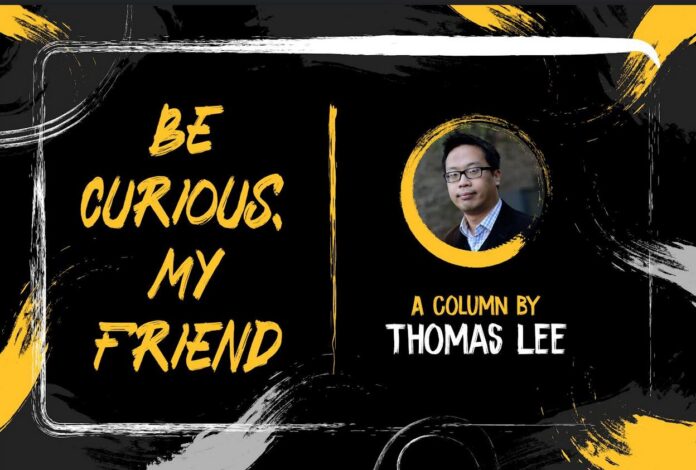By Thomas Lee
On an episode of Hidden Brain, NPR’s superb podcast on human psychology, host Shankar Vedantam discussed the “Ostrich Effect.”
The concept describes how people will avoid information if it causes them pain. But such actions are inherently “irrational,” especially when it comes to finances or health because we need this information to make better decisions. The podcast featured sound bites from viewers who stopped consuming news because they were so upset about the re-election of Donald Trump as President.
“A person should never avoid information, because information can never hurt a decision,” main guest Joshua Tasoff, a professor at Claremont Graduate University, told Vedantam.
I found Tasoff’s blanket statement surprising because he is a behavioral economist. Unlike regular economists, Tasoff seeks to fuse psychology and economics to develop theories that better reflect the complexities of human behavior.
Yet Tasoff’s comments on the podcast seem to completely ignore a big problem sweeping through America today: mental illness, specifically depression and anxiety.
In 2016, about 16.2 million U.S. adults, or 6.7 percent of all adults, suffered from major depression, according to data from the National Institute of Mental Health. Major depression is the leading disability for people between ages 15 to 44.3.
Anxiety is even worse. The disorder impacts 40 million U.S. adults each year, or 18.1 percent of the population. I suffer from both conditions.
I’m not sure if Tasoff is familiar with mental illness. But when you suffer from depression and/or anxiety, it’s hard to separate the cognitive or rational side of your brain from the emotions that overwhelm it. Put simply, what you know and what you feel are completely different things.
Depressed people frequently use the word “should,” which expresses a guilt or shame that they “should” be doing rational or “normal” things but are not.
Seeing a therapist or taking medication might seem like the “rational” thing to do. But many people don’t seek treatment because of the social stigma attached to these diseases. That they are not really diseases but rather character flaws or weakness.
Tasoff’s words only reinforce this stigma. People suffering from mental illness will avoid information that will case them distress. In the case of Post-Traumatic Stress Disorder, information might even trigger memories of trauma. But according to Tasoff’s theory, we are “irrational.” We therefore “should” act in a rational manner.
“Distinguishing between mental health and mental disorder based on irrationality can contribute to mental health stigma,” Elly Vintiadis, a professor of philosophy at the American College of Greece, wrote in a blog post for Scientific American.
“By distinguishing one part of the population from the rest and labeling it ‘irrational,’ one sustains the attitude that patients suffering from mental disorders are somehow essentially different from the rest of the population…and thus less capable, to be avoided, not to be trusted with responsibility.”
“This kind of ‘othering’ increases the separation of ‘us’ and ‘them,’ ‘healthy’ and ‘diseased,’ in the eyes of both the public and the people diagnosed and feeds a mentality which leads to marginalization and stigmatization,” she wrote.
Tasoff doesn’t even seem to distinguish between relevant or useful information from just information, “the signal from the noise” a phrase borrowed from famed statistician Nate Silver.
In fact, when it comes to health, studies have shown that people with too much information will make bad decisions for their health, such as unnecessary testing and treatments that could do more harm than good.
Moreover, I would argue to Tasoff that avoiding information is the ultimate act of rationality for people with depression and anxiety.
Remember that old joke:
Patient: Doctor, it hurts when I move my leg.
Doctor: Well, stop moving it!
One thing mental health professionals try to teach patients is the act of setting boundaries, a type of self-care in which people limit the amount of information they absorb in order to preserve some measure of stability.
Take those people Hidden Brain highlighted at the beginning of the podcast, the ones that had to turn off the news because of Trump. The podcast implied these people are guilty of the irrational act of avoiding information.
I see people freaking out every day about what Trump did or didn’t do, what he said, what he didn’t say. Don’t fall into complacency, they warn. Resist. Let down your guard for a moment and the country will fall into hands of Nazis and fascists.
Those are real threats. But there is only so much outrage and anger one can summon before you crack like an egg.
That doesn’t mean sticking our heads in the sand, as the “Ostrich Effect” seems to imply. It means achieving a level of self-awareness about what you’re realistically able or unable to do, given the complex set of factors that impact mental health every day.
What could be more rational than that?
AsAmNews is published by the non-profit, Asian American Media Inc.
We’re now on BlueSky. You can now keep up with the latest AAPI news there and on Instagram, TikTok, Facebook, YouTube and X.
We are supported by generous donations from our readers and by such charitable foundations as the Robert Wood Johnson Foundation.
You can make your tax-deductible donations here via credit card, debit card, Apple Pay, Google Pay, PayPal and Venmo. Stock donations and donations via DAFs are also welcomed.

